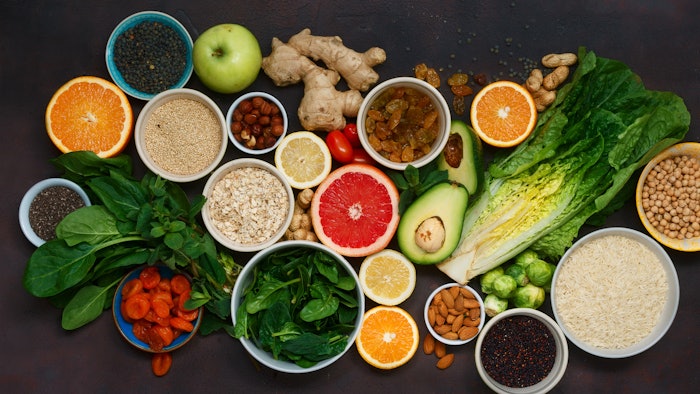
Developing a healthy diet can mean different things for different guests, but one constant is the need for a healthy gut. The gut microbiome affects numerous parts of the body, including cardiovascular health, immune response, mental well-being, hormone balance and maintaining a healthy weight. It can contribute to several health problems, including diabetes, high blood pressure, irritable bowel syndrome and anxiety.
While taking probiotics can give the gut a boost, building a solid foundation of healthy nutrition that fuels good bacteria is essential to a balanced gut microbiome. These 10 foods that are especially beneficial for gut health can help guide guests to a more comfortable lifestyle and inform your spa's snack menu.
Sponsored
Related: 6 Foods + Nutrients for Glowing and Healthy Skin
1. Ginger
Ginger can support a healthy gut by improving digestion and providing relief for an upset stomach. It can also reduce heartburn, help with congestion and promote weight loss. Gingerol, a natural compound found in fresh ginger, is packed with anti-inflammatory and antioxidant properties that can help restore gut balance.
Ginger is commonly added to tea, but it can also be blended into a smoothie or taken as a daily supplement.
2. Bananas
Bananas contain a fiber called inulin, a prebiotic that can help develop a microbiome and provide fuel for good bacteria that help maintain gut health.
Bananas are also a rich source of fructooligosaccharides, which act as a probiotic and promote the growth of good bacteria in the digestive tract, which ultimately helps with digestion.
3. Yogurt
Yogurt is rich in probiotics and can help with gut issues, improve digestion and promote a proper balance of gut bacteria. However, not all yogurt is live with probiotics, so be sure to read the label and search for ones that contain live bacteria. High-protein yogurt with minimal sugar is the best, according to the health experts at the superfood supplement store Human Tonik.
4. Lentils
Lentils are a versatile food rich in nutrients like iron, B vitamins, magnesium, potassium and zinc, as well as resistant starches that are good for gut health.
Resistant starches are carbohydrates that do not break down into sugar and are not absorbed by the small intestine. They pass through most of the digestive system unchanged, usually fermenting in the colon. They then decrease the pH level in the colon to help create an environment where beneficial bacteria thrive.
Lentils can be added to soup, pasta and salads, baked with chicken or fish in the oven or simply served as a side dish.
5. Almonds
Almonds are high in fiber, which can increase the production of butyrate, which is produced when good bacteria help break down the dietary fiber in the colon, per the Cleveland Clinic. It promotes the growth of villi, microscopic extrusions that line the intestines and enhances the production of mucin, a gel-like substance that coats the inside of the gut and keeps it healthy.
However, it should also be noted that almonds are high in fat, so while a handful of almonds a day is recommended for gut health, it should be done in moderation. Adding almonds to breakfast smoothies or yogurt is one effective way to include them in a healthy spa snack.
6. Raspberries
Per nutrition scientist Michael Hartman, Ph.D., raspberries have a high dose of vitamins, nutrients, gut-nourishing fiber and water content that can alter the composition and diversity of the gut microbiome and help maintain a healthy digestive tract.
7. Broccoli
Eating lots of deeply pigmented vegetables and fresh, leafy greens that are rich in fiber and prebiotics is crucial to supporting gut health, according to Dr. Hartman. Broccoli is a complex carbohydrate that is rich in fiber, vitamins A, K, iron and potassium that can aid with fatigue and digestive problems.
8. Sunchokes
Also known as Jerusalem artichokes, these root veggies are a great source of inulin, which promotes digestive health, helps to control blood sugar, and may reduce the risk of colon cancer, according to Dr. Hartman.
9. Split Peas
Split peas are high in soluble fiber and protein and can be an excellent source of folate, iron and potassium.
10. Kimchi
Kimchi is a probiotic food that can help good bacteria, be a source of beta carotene and other micronutrients, can improve heart health, reduce inflammation, and may help to reduce blood sugar.











